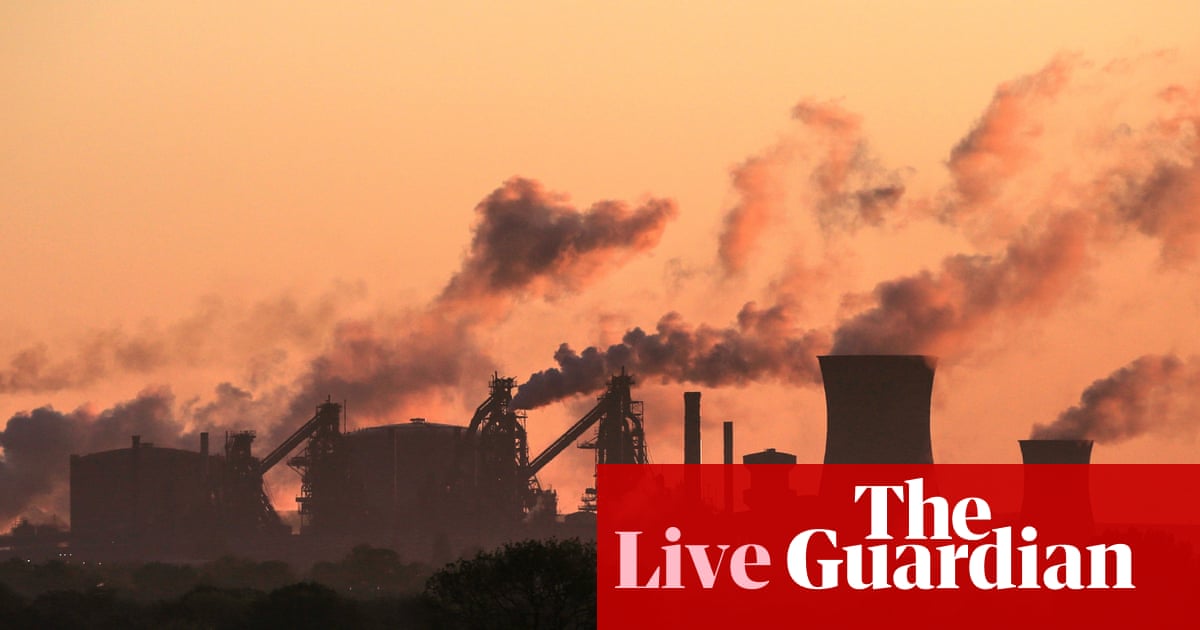European shares have risen, despite Donald Trump’s latest trade levies, with Airbus leading gains while traders remain nervous.
Airbusshares rose by 3.4% after Bloomberg News reported that Chinese airlines are considering ordering hundreds of aircraft as soon as next month.
Germany’s Dax rose by 0.7% while the French CAC gained by 0.3% and Italy’s FTSE MiB edged up 0.2%. The FTSE 100 index in London was flat.
The pan-European Stoxx 600 index rose by 0.3% and has rallied about 15% from its lows in early April, after the US president paused sweeping tariffs and struck a trade agreement with the UK (which still has to be finalised).
Heidi Alexander, the UK transport secretary, said the priority of the UK government is to get the trade deal with the US implemented, but did not say when the deal will be finalised.
Speaking on BBC radio 4’s Today programme she said:
She added that the government was doing everything it could to help businesses.
The G7 advanced economies, Britain, Canada, France, Germany, Italy, Japan and the United States, are also due to hold separate talks on trade today.
German economy ministerKatherina Reichesaid yesterday, on the sidelines of OECD talks in Paris:
French trade minister Laurent Saint-Martinadded:
Mexico will request an exemption from the higher tariff, economy ministerMarcelo Ebrardsaid, arguing that it is unfair because the United States exports more steel to Mexico than it imports.
Mexico is highly vulnerable to Trump’s trade wars because 80% of its exports go to the United States, its main trading partner.
On Tuesday, White House press secretaryKaroline Leavittconfirmed the Trump administration sent letters to trading partners to push for offers by Wednesday as a deadline approached.
This underlines Trump’s use of tariffs as a negotiating tool.
Steel companies had been considering whether to turn shipments around in the Mid-Atlantic to try and sell products in Europe, rather than pay 50% tariffs.
There were also questions over whether products immediately shipped back from the US would be liable.
Liam Bates, president for long products atMarcegaglia Stainless Sheffield, said the UK industry was relieved. He said “storm in a teacup springs to mind”.
However, he added that “this is still a wider issue as anything not exclusively UK is attracting 50%” tariffs. It “also does require this 0% deal is now done”.
Tariffs overshadow an OECD meeting in Paris as world economy ministers gather, with the European Union saying it “strongly regrets” the US decision to double tariffs on steel imports to 50%, a new duty effective as of today.
US trade representativeJamieson Greerand EU trade commissionerMaroš Šefčovičare set to hold talks at 8am BST in Paris, with the bloc seeking to carve out its own deal.
The UK has already been exempted from the increase after a meeting between UK trade secretaryJonathan Reynoldsand Greer.
Keir StarmerandDonald Trumpagreed a tariff pact with 0% tariffs on steel and autos last month but there are concerns that the deal has not been legalised.
In their talks, Reynolds and Greer discussed a “shared desire to implement” the pact, including agreements on sectoral tariffs, as soon as possible, according to a UK readout.
But Trump’s latest salvo raises temperatures with various partners.
The EU has said it “strongly regrets” Trump’s plan to raise metals tariffs, cautioning that it “undermines ongoing efforts to reach a negotiated solution” with the United States.
Reynolds is in Brussels today to meet EU vice presidentStéphane Séjournéand Ukrainian environment protection ministerSvitlana Hrynchuk. Reynolds and Séjourné are due to hold a press conference in Brussels at 11.30am BST.
They are gathering to discuss critical raw materials but Trump’s tariffs are expected to be raised.
Uncertainty from tariffs is “quite far reaching” across industry, saidBrandauerbossRowan Crozierspeaking on BBC radio 4’s Today programme:
Asked whether Brandauer’s customers in the United States are having to pay more for its products because of the increase in tariffs, Crozier said:
Good morning, and welcome to our rolling coverage of business, the financial markets and the world economy.
We’ve woken up to news that the UK will, for now, be spared the 50% steel and aluminium tariffs on shipments to the US which come into effect today.
In astatement,Donald Trump, said he had decided to “provide different treatment” to the UK after a trade agreement was struck between Washington and London last month.
Meanwhile,US levies on steel and aluminium imports from other countries are doubling to 50%.
Levies will remain at 25% for imports from Britainbut the higher 50% rate could kick in from 9 July if the administration “determines that the United Kingdom has not complied with relevant aspects” of the deal.
The ongoing uncertainty is not good for businesses, saidRowan Crozier, chief executive of the Birmingham-basedBrandauer, a metal pressing and stamping specialist that produces millions of parts that are sent around the world.
Talking about the UK’s exemption from the latest tariff hike, he said on BBC radio:
Asian stocks have risen, with South Korea’s Kospi rallying by 2.5% as the election victory of theliberal presidential candidateLee Jae-myungraised hopes of swift economic stimulus.
Japan’s Nikkei added nearly 1% while the Taiwanese stock market jumped by 2.3% after technology stocks were boosted by US artificial intelligence giantNvidia. It overtook Microsoft to become the world’s most valuable publicly traded company again yesterday, when its shares rose by 3%.
Stock futures are pointing to a modestly higher open in European markets.
Charu Chanana, chief investment strategist at Saxo in Singapore, told Reuters:
The Agenda
9am BST: Eurozone Services and composite PMIs final for May
9.30am BST: UK Services and composite PMIs final for May
2.45pm BST: Bank of Canada interest rate decision
3pm BST: US ISM Services PMI
